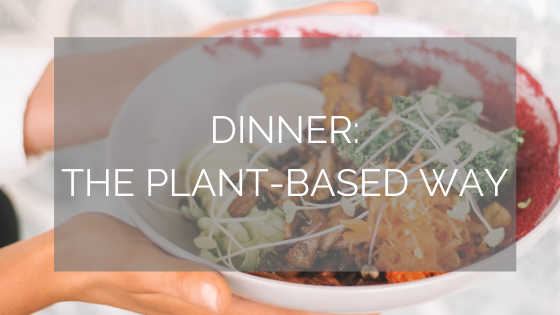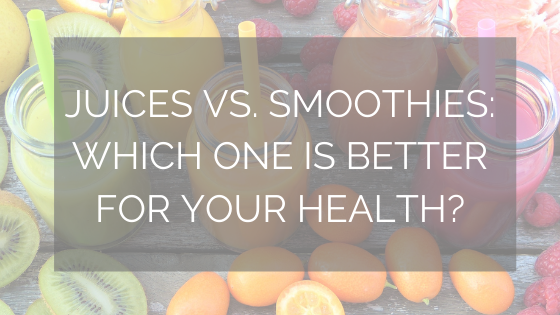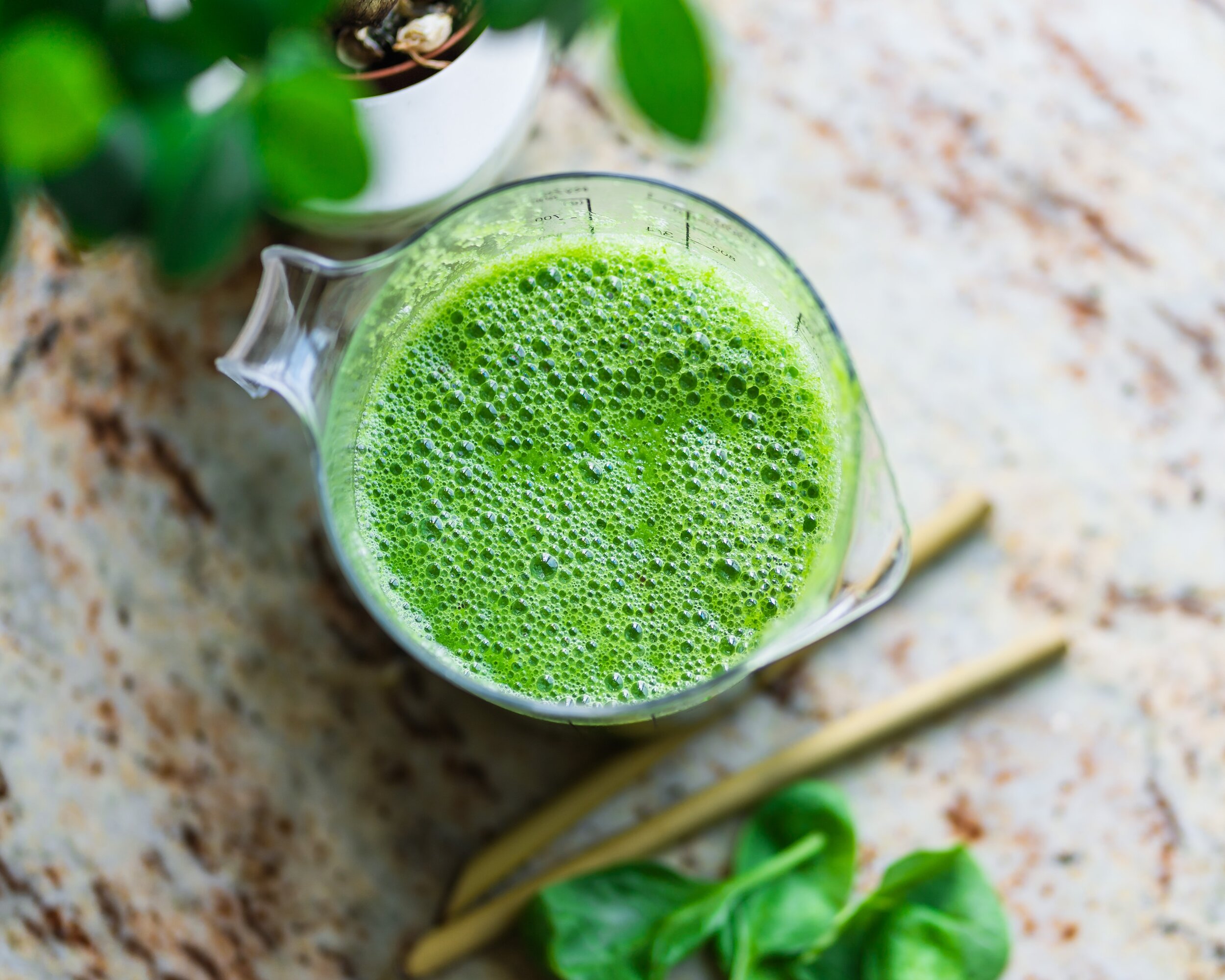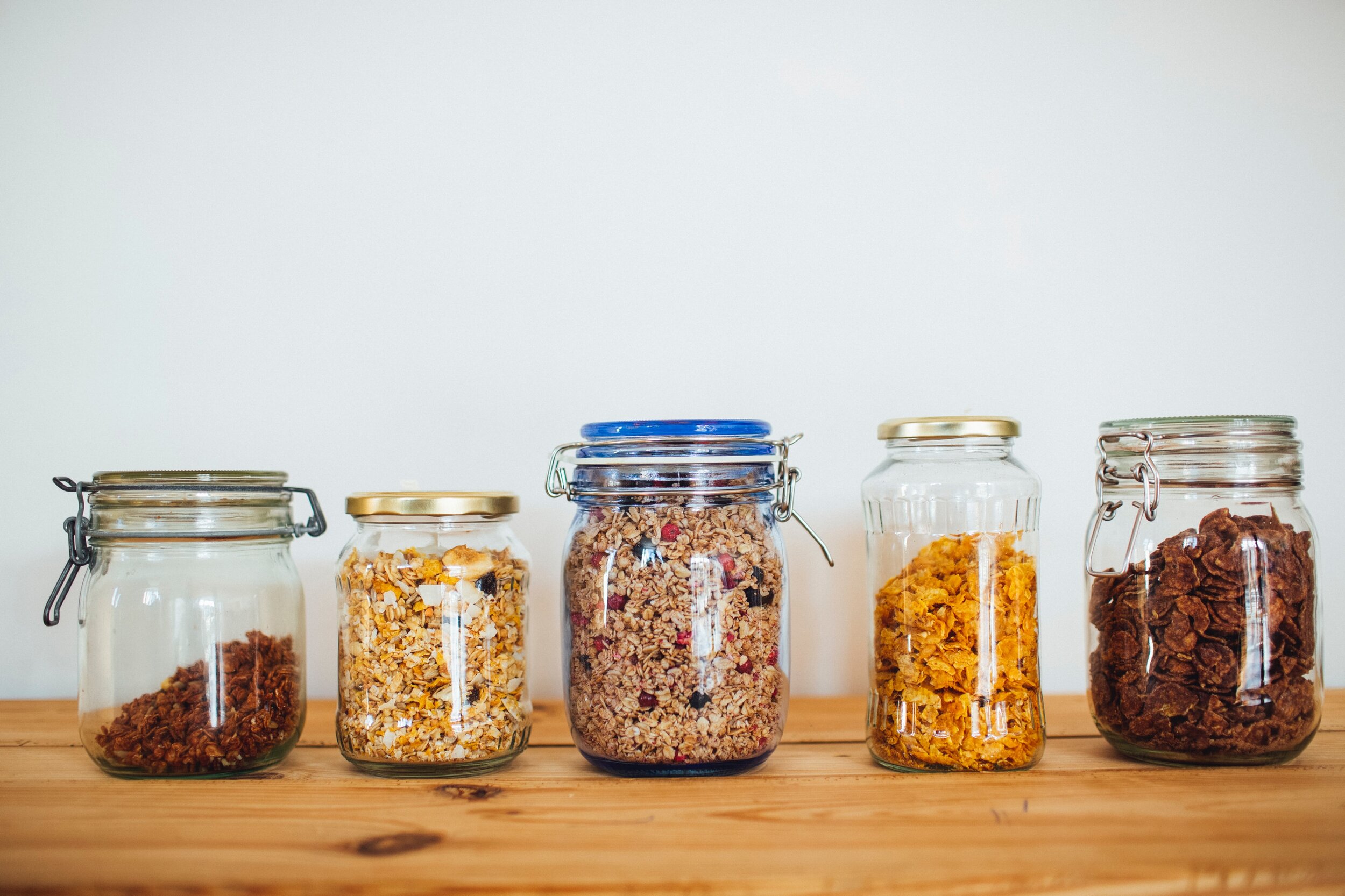Written By Hannah O’Shei, PNW Intern, Spring 2021
Does this sound familiar? You eat broccoli, beans, or a large meal and you suddenly need to unbutton your pants or feel that you look pregnant? You’re not alone! Bloating can be uncomfortable and sometimes embarrassing but it doesn't automatically mean there’s something wrong with you or your body!
What is bloating? Bloating is caused by a buildup of gas or air in the gastrointestinal tract. For many it can cause an uncomfortable tight or full sensation in the stomach, usually after meals, and it’s often followed by gas and/or belching. For others bloating can be a symptom of a serious health condition such as irritable bowel syndrome (IBS) or Crohn’s disease. In this article we’ll talk about normal bloating vs. when it’s a cause for concern and then go over the top 5 reasons you might be bloated on a plant-based diet.
Normal Bloating Vs. When It’s a Cause for Concern
Is bloating normal? Yes! If you have ever worried about bloating in the past you might be surprised to learn that bloating is completely normal. It’s just another bodily function. Some people do experience more bloating than others which can be caused by making changes in the diet, eating patterns, and even stress. For the most part though bloating and gas is not something to be concerned about.
When do you know if there is a problem? If bloating is accompanied by other symptoms such as nausea, vomiting, diarrhea, cramps, or pain this could be a sign that your bloating is a symptom of something more serious. It’s advisable to speak to your dietitian and health care provider about these symptoms.
Some more serious causes of bloating include but are not limited to:
Food intolerances (such as Lactose Intolerance)
Celiac disease
IBS (Irritable Bowel Syndrome)
IBD (Irritable Bowel Disease)
Eating Disorders
Either way, if you are experiencing new or unusual (for you) bloating on a plant-based diet, it’s a good idea to explore what might be causing it. Here are five things to explore and consider.
Common culprits of bloating on a plant-based diet:
Eating too much fiber, too quickly - Fiber is a type of carbohydrate that our body cannot digest. It does important things in the body such as feeding the healthy bacteria in our gut, adding bulk to stools, keeping us regular, and lowering cholesterol. Fiber is only found in plant foods such as fruits, vegetables, whole grains, beans/legumes, and even processed foods like meat alternatives. Although fiber is a healthy and important part of a balanced diet if we eat excessive amounts of fiber it can cause gas, bloating, and abdominal discomfort. What does this mean? Instead of avoiding fiber, it’s important to eat it on a regular basis, chew foods thoroughly, and increase your fiber intake gradually. Adults should aim to eat around 25-30g of fiber per day. This number may be higher depending on how many whole foods you eat and what your body is used to.
Not enough fluids - In addition to eating too much fiber, not drinking enough water throughout the day is another way to increase bloating and swelling. When we don’t drink enough fluids our body will start to retain water in our cells which may lead to bloating. Just as it’s important to eat fiber regularly, it’s also important to drink plenty of water each day. As you increase your fiber intake you should also be increasing your water intake which will decrease chances of becoming bloated, constipated, or experiencing abdominal pain.
Cruciferous vegetables - Cruciferous vegetables are in the family of Brassicaceae which includes broccoli, brussels sprouts, cauliflower, cabbage, kale, arugula, and bok choy. They are a great source of vitamins A, K, C, folate, and antioxidants. Cruciferous vegetables are not only high in fiber but also contain raffinose, a complex sugar that humans cannot digest and glucosinolates, which are sulphur containing compounds. Both raffinose and glucosinolates can contribute to bloating and gas. Eating these vegetables cooked rather than raw can help your body digest them more easily. Some people may also naturally be better at digesting these foods due to differences in the gut microbiome and lifestyle.
Beans - Beans (which includes beans, legumes and peas) are part of the Fabaceae or Leguminosae family of flowering plants. These foods are a staple around the world for being inexpensive and nutrient dense. Beans are a great source of plant-based protein, fiber, antioxidants, and vitamins. But, why do beans make us bloated? Beans contain resistant starches and oligosaccharides which when digested by the bacteria in our gut produce bloating and gas. Some ways to increase the digestibility of beans is to soak them in water for 3 hours, chew them slowly and thoroughly, eat them mashed, and make sure they are properly cooked.
Eating meals too quickly - Eating too quickly is another common cause for bloating. Did you know that the digestive system actually begins in the mouth? The salvia in our mouth (which contains digestive enzymes) and the act of chewing helps to break down food so it can be more easily digested in the stomach. The faster we eat, the less our food is chewed and digested in the mouth, leading to large pieces of food entering the stomach undigested or partially digested which can create excess bloating. To help with this, it’s recommended to eat slowly, chew your food thoroughly, and don’t wait too long to eat.
Takeway
It’s important to remember that some gas and bloating are normal bodily functions. For most people, they cause nothing more than occasional, and temporary, discomfort and fullness. Many of the foods that can cause bloating are nutrient dense and full of gut-loving fiber so it’s important that we incorporate those foods into our diets on a regular basis. Also, eating foods like beans and cruciferous vegetables have been shown to reduce our risk of cancer and other health conditions so we don’t recommend avoiding them entirely. Contrary to what social media might tell you, both bloating and gas are signs that our bodies are working normally! However, if you do experience chronic pain, diarrhea, nausea, vomiting, or cramps after eating it’s important you talk to your dietitian or doctor about this.



















































